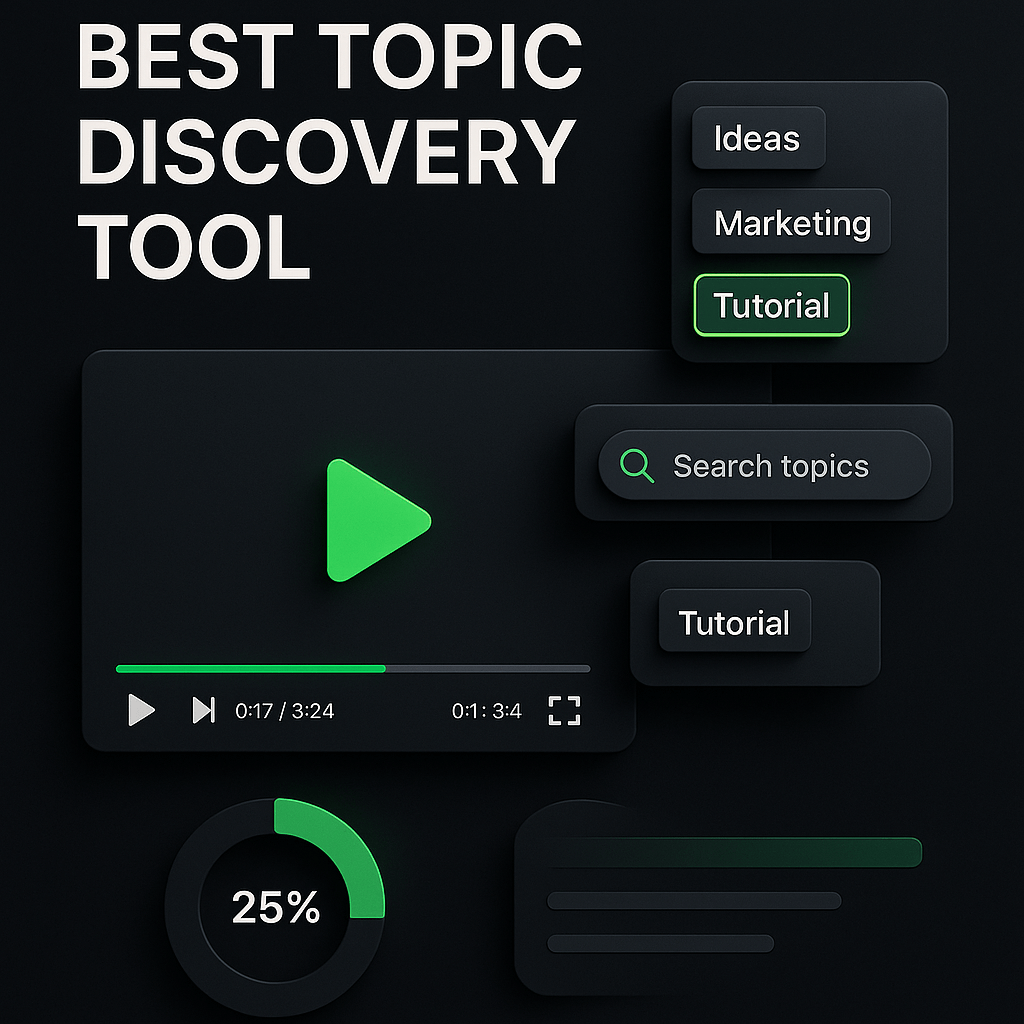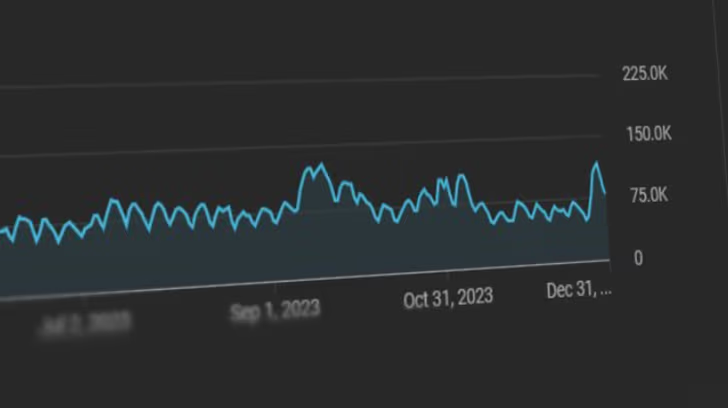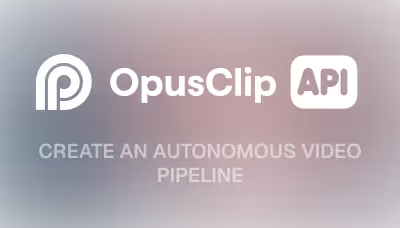10 Best Topic Discovery Tools (Trends + Communities + Search)

I've spent countless hours staring at blank screens, wondering what content to create next. The pressure to find topics that resonate with audiences while staying ahead of trends can feel overwhelming. That's why I rely on topic discovery tools to cut through the noise and identify what people actually care about right now.
The right topic discovery tool doesn't just suggest random ideas. It reveals what your audience is searching for, what communities are buzzing about, and which trends are gaining momentum before they peak. Whether you're creating videos, blog posts, or social media content, these tools transform guesswork into data-driven decisions. In this guide, I'll walk you through the 10 best topic discovery tools across three critical categories: trend analysis, community listening, and search intelligence. Each tool offers unique strengths that can supercharge your content strategy.
Key Takeaways
- Topic discovery tools transform content creation from guesswork into data-driven strategy by revealing what audiences actually care about.
- Trend tools like Google Trends and Exploding Topics help you identify rising topics before they become saturated with competition.
- Community platforms like Reddit and Quora provide authentic insights into real problems and questions your audience is actively discussing.
- Search-based tools like Ahrefs and Semrush reveal explicit demand and help you create content that ranks and captures organic traffic.
- The most effective approach combines multiple tool categories to validate topics from different angles before investing in content creation.
- Repurposing validated content across platforms with tools like OpusClip maximizes the ROI of your topic research and content production.
- Regular monitoring and iteration based on performance data creates a feedback loop that continuously improves your topic selection accuracy.
Why Topic Discovery Tools Matter for Content Success
Creating content without research is like throwing darts blindfolded. You might hit the target occasionally, but you're wasting time and resources on most attempts. Topic discovery tools give you the intelligence to create content that already has proven demand. They show you what questions people are asking, what problems they're trying to solve, and what conversations are happening in your niche right now.
I've seen creators double their engagement simply by switching from intuition-based topics to data-backed ones. These tools help you avoid saturated topics where competition is fierce and instead identify emerging opportunities where you can establish authority early. They also reveal content gaps that your competitors haven't filled yet, giving you a strategic advantage. The best part is that most of these tools provide insights you can act on immediately, not theoretical data that requires a PhD to interpret.
When you combine topic discovery with smart content repurposing, you multiply your impact. For instance, once you identify a winning topic, you can create a long-form video and use OpusClip to automatically generate multiple short clips optimized for different platforms. This approach ensures you're not just finding the right topics but also maximizing their reach across your entire content ecosystem.
Trend-Based Topic Discovery Tools
Trend tools help you catch waves before they crest. They monitor real-time data across platforms to show you what's gaining traction right now. I use these tools when I want to create timely content that capitalizes on current interest, or when I need to spot emerging patterns that signal long-term opportunities.
Google Trends
Google Trends remains my go-to for understanding search interest over time. It's completely free and provides data directly from the world's largest search engine. You can compare multiple topics, filter by geography and time range, and see related queries that people are searching for alongside your main keyword. The tool excels at showing you whether interest in a topic is rising, falling, or seasonal. I particularly love the "Rising" queries section, which highlights searches that have seen explosive growth recently. This feature alone has helped me create content that ranks quickly because I'm addressing questions before most competitors even notice them. Google Trends also shows you regional interest, so if you're targeting specific markets, you can tailor your content accordingly.
Exploding Topics
Exploding Topics takes trend discovery to the next level by identifying topics before they explode into mainstream awareness. The platform uses algorithms to scan millions of searches, conversations, and mentions to spot patterns that indicate rapid growth. Unlike Google Trends, which shows you what's already trending, Exploding Topics predicts what will trend next. I've used it to create content on emerging technologies and cultural shifts months before they became saturated. The tool categorizes trends by industry, growth rate, and time frame, making it easy to filter for topics relevant to your niche. The paid version provides deeper data and earlier access to trends, but even the free tier offers valuable insights. If you want to position yourself as an early adopter and thought leader, this tool is essential for your content strategy.
BuzzSumo
BuzzSumo combines trend analysis with content performance data to show you not just what's trending but what's actually working. You can search any topic and see the most shared and engaged content across social platforms. This gives you insight into which angles, formats, and headlines resonate most with audiences. I use BuzzSumo to analyze competitor content and identify gaps in coverage. The tool also offers influencer identification, so you can see who's driving conversations in your space. The "Trending Now" feature surfaces breaking topics with high engagement potential, perfect for creating timely content. BuzzSumo's content analyzer helps you understand why certain pieces perform well, whether it's the headline structure, content length, or emotional appeal. This intelligence helps you craft content that's not just on-trend but also optimized for maximum engagement and shares.
Community-Based Topic Discovery Tools
Communities are goldmines for authentic topic ideas because they reveal what real people are discussing, debating, and seeking help with. These tools help you tap into conversations happening in forums, social platforms, and niche communities where your audience gathers.
Reddit Keyword Research Tools (Keyworddit, GummySearch)
Reddit hosts thousands of active communities discussing virtually every topic imaginable. Tools like Keyworddit and GummySearch help you extract valuable keyword and topic data from these discussions. Keyworddit analyzes subreddit content to identify frequently mentioned keywords and phrases, giving you raw, unfiltered insight into what community members care about. GummySearch takes this further by monitoring multiple subreddits for pain points, product requests, and common questions. I've discovered dozens of content ideas by simply analyzing what frustrates or excites people in relevant subreddits. These tools reveal the actual language your audience uses, not the sanitized corporate-speak that often dominates traditional keyword research. You can identify recurring problems that need solutions, controversial topics that generate engagement, and emerging interests before they hit mainstream platforms. The authenticity of Reddit conversations makes these insights particularly valuable for creating content that resonates on a human level.
Quora
Quora is essentially a massive database of questions people are actively seeking answers to. I treat it as a direct line to audience pain points and curiosity gaps. By searching topics in your niche, you can see which questions get the most views and follows, indicating strong interest. The platform's algorithm surfaces questions that are gaining traction, helping you identify timely opportunities. I often browse Quora to find specific angles on broad topics. For example, instead of creating generic content about "video marketing," I might discover highly specific questions like "How do I repurpose webinar recordings for social media?" that reveal precise audience needs. Quora also shows you which answers get the most upvotes, giving you insight into what information people find most valuable. You can follow topics to receive notifications about new questions, ensuring you never miss emerging interests in your field. The platform's international reach means you can also identify regional variations in how people approach topics.
AnswerThePublic
AnswerThePublic visualizes search questions and autocomplete data in an intuitive format that makes topic discovery almost fun. Enter any keyword, and the tool generates hundreds of questions, prepositions, comparisons, and related searches that people are typing into search engines. The visual wheel format helps you quickly scan for interesting angles you might not have considered. I particularly appreciate how the tool organizes questions by type: what, why, how, when, where, and who. This structure naturally suggests different content formats and approaches. For instance, "how" questions are perfect for tutorial content, while "why" questions work well for explanatory or opinion pieces. The tool also highlights search volume when you upgrade to the paid version, helping you prioritize topics with the most demand. AnswerThePublic updates its data regularly, so you're seeing current search behavior rather than outdated patterns. It's especially useful for brainstorming content series because you can identify multiple related questions that could form a comprehensive topic cluster.
Search-Based Topic Discovery Tools
Search tools give you direct access to what people are typing into search engines, revealing explicit intent and demand. These tools are essential for SEO-focused content strategies where you want to rank for specific queries and capture organic traffic.
Ahrefs Keywords Explorer
Ahrefs Keywords Explorer is my most-used tool for search-based topic discovery because it combines massive data scale with actionable metrics. You can enter any seed keyword and instantly see thousands of related keywords, along with search volume, keyword difficulty, and click metrics. What sets Ahrefs apart is the "Questions" filter, which shows you all the question-based searches related to your topic. This feature alone generates dozens of content ideas in seconds. The "Also rank for" feature reveals keywords that pages ranking for your target term also rank for, helping you understand the full topic landscape. I use the "Parent Topic" metric to identify whether I should target a specific keyword or create broader content that captures multiple related searches. Ahrefs also provides SERP analysis, showing you what's currently ranking and what content format Google prefers for each query. The tool's traffic potential metric estimates actual traffic you could receive, not just search volume, giving you a more realistic picture of opportunity.
Semrush Topic Research
Semrush Topic Research takes a more holistic approach to topic discovery by generating content ideas based on semantic relationships and user intent. Enter a topic, and the tool creates cards with subtopics, related questions, and headline ideas. Each card includes metrics like search volume, topic efficiency, and difficulty. I find this tool particularly useful for planning comprehensive content that covers a topic thoroughly rather than just targeting isolated keywords. The "Resonance" metric shows you which subtopics generate the most engagement, helping you prioritize angles that audiences care about most. Semrush also suggests content formats and structures based on what's performing well in search results. The tool integrates with Semrush's broader SEO suite, so you can seamlessly move from topic discovery to keyword research to content optimization. I use it when I'm planning content clusters or pillar pages that need to address multiple facets of a broad topic comprehensively.
AlsoAsked
AlsoAsked visualizes the "People Also Ask" boxes from Google search results, creating a branching tree of related questions. This tool is brilliant for understanding how search intent evolves and what follow-up questions people have after their initial query. The visual format makes it easy to identify question sequences that could form the structure of a comprehensive article or video series. I've used AlsoAsked to plan tutorial content where each branch represents a section or chapter. The tool shows you the depth of questions, revealing how specific people get when researching a topic. This helps you decide whether to create beginner-friendly content that addresses surface-level questions or advanced content that dives into the deeper branches. AlsoAsked updates regularly as Google's "People Also Ask" results change, ensuring you're seeing current search behavior. The tool is particularly valuable for identifying long-tail opportunities that have less competition but strong intent. You can export the question trees to share with your team or integrate into your content planning workflow.
How to Choose the Right Topic Discovery Tool for Your Needs
Not every tool fits every situation, and I've learned that the best approach combines multiple tools rather than relying on just one. Your choice should depend on your content goals, audience, and resources. If you're creating timely content that capitalizes on current events, trend tools like Google Trends and Exploding Topics should be your priority. They help you ride waves of interest while they're still building momentum.
For creators focused on building community and addressing real pain points, community tools like Reddit analyzers and Quora provide unfiltered access to authentic conversations. These tools excel when you want to create content that resonates emotionally and addresses specific problems your audience faces daily. If your primary goal is SEO and organic traffic, search-based tools like Ahrefs and Semrush give you the data you need to rank and capture search demand. They're essential for building sustainable traffic that compounds over time.
I recommend starting with free tools to understand the basics of each category, then investing in paid tools for the categories that align most with your strategy. Most creators benefit from having at least one tool from each category because different content types require different discovery approaches. A well-rounded content strategy includes trending topics for immediate engagement, community-driven topics for authenticity, and search-optimized topics for long-term traffic. Budget also matters, so prioritize tools that offer the most value for your specific use case rather than trying to subscribe to everything at once.
Step-by-Step Process for Finding Winning Topics
I follow a systematic process that combines multiple tools to identify topics with the highest potential. This approach ensures I'm not just finding ideas but validating them before investing time in content creation. Here's exactly how I do it, step by step.
Step 1: Start with broad trend scanning. I begin by checking Google Trends and Exploding Topics to identify what's gaining momentum in my niche. I look for topics with consistent upward trajectories rather than temporary spikes, as these indicate sustainable interest. I also note seasonal patterns that might affect timing. This initial scan gives me a shortlist of 10 to 15 potential topics that have momentum behind them.
Step 2: Validate with community research. Next, I take my shortlist to Reddit and Quora to see if real people are actively discussing these topics. I search relevant subreddits and Quora spaces to gauge the depth of interest and identify specific angles that resonate. If a topic is trending but nobody's actually talking about it in communities, that's a red flag. I'm looking for topics where people are asking questions, sharing experiences, and expressing genuine interest or frustration.
Step 3: Analyze search demand and competition. Once I've confirmed community interest, I use Ahrefs or Semrush to check search volume and keyword difficulty. I look for topics with decent search volume but manageable competition, what I call the "sweet spot" where I can actually rank. I also check the "Questions" section to find specific long-tail variations that might be easier to target initially.
Step 4: Study top-performing content. Before finalizing my topic, I use BuzzSumo to analyze what content is already performing well. I look at the top 5 to 10 pieces to understand what angles work, what formats get the most engagement, and what gaps exist in current coverage. This research helps me position my content to be better, more comprehensive, or more actionable than what's already out there.
Step 5: Create and repurpose strategically. After selecting my topic, I create the core content, whether that's a video, article, or podcast episode. Then I use tools like OpusClip to repurpose that content into multiple formats and clips optimized for different platforms. This ensures that my research effort pays off across my entire content ecosystem, not just one piece. I can turn a single well-researched video into 10 or more short clips, each highlighting a different insight or angle from the original content.
Step 6: Monitor performance and iterate. Finally, I track how my content performs using analytics and engagement metrics. I note which topics and angles resonate most with my audience, then use that data to inform future topic discovery. This creates a feedback loop where each piece of content teaches me something about what my audience wants, making my topic selection increasingly accurate over time.
Frequently Asked Questions
What's the difference between trend tools and search tools for topic discovery? Trend tools show you what's gaining momentum right now or what will trend soon, focusing on temporal interest patterns. Search tools reveal what people are actively typing into search engines, indicating explicit demand and intent. Trend tools are better for timely content, while search tools are essential for evergreen SEO content. I use both because they serve different strategic purposes in a balanced content calendar.
Do I need paid tools or are free topic discovery tools enough? Free tools like Google Trends, Quora, and basic Reddit browsing provide substantial value and are perfect for beginners or creators on tight budgets. However, paid tools offer deeper data, more keywords, competitive analysis, and time-saving features that become valuable as you scale. I started with free tools and gradually added paid subscriptions as my content strategy matured and required more sophisticated insights.
How often should I use topic discovery tools? I recommend weekly trend scanning to stay current with emerging topics and monthly deep dives for comprehensive content planning. For evergreen content, quarterly research sessions help you identify new opportunities and refresh your content strategy. The frequency depends on your publishing schedule and niche volatility. Fast-moving industries require more frequent research than stable, evergreen niches.
Can topic discovery tools help with video content specifically? Absolutely, the same principles apply whether you're creating written, audio, or video content. In fact, video creators benefit enormously because you can identify topics with high engagement potential, create comprehensive video content, then use OpusClip to automatically generate multiple short clips optimized for platforms like TikTok, Instagram Reels, and YouTube Shorts. This approach maximizes the value of your topic research across multiple content formats.
What if multiple tools suggest different topics? This is actually common and not necessarily a problem. Different tools measure different signals, so variation is expected. I look for topics that appear across multiple tools as these have validated demand from multiple angles. If tools disagree, I prioritize based on my strategic goals: trend tools for immediate content, community tools for authentic engagement, and search tools for long-term traffic. The key is understanding what each tool measures and aligning that with your content objectives.
How do I know if a topic is too competitive to pursue? Check keyword difficulty scores in tools like Ahrefs or Semrush, with scores below 30 generally being accessible for newer sites. Also analyze the SERP to see who's ranking: if the top 10 results are all major publications with high domain authority, you'll struggle to compete directly. Instead, look for long-tail variations or specific angles that haven't been thoroughly covered. Sometimes a competitive topic can still work if you approach it from a unique perspective or target a specific audience segment that's underserved.
Should I focus on trending topics or evergreen content? The ideal content strategy includes both. Trending topics drive immediate traffic and engagement, helping you capitalize on current interest and grow your audience quickly. Evergreen content builds sustainable traffic over time and continues delivering value months or years after publication. I typically aim for a 70/30 split favoring evergreen content, with trending pieces sprinkled in to capture timely opportunities. This balance ensures both short-term wins and long-term growth.
Start Discovering Topics That Actually Convert
The difference between content that flops and content that thrives often comes down to topic selection. I've seen creators transform their results simply by investing time in proper topic discovery before hitting record or starting to write. The tools I've shared give you access to the same intelligence that top creators and marketers use to consistently produce content that resonates, ranks, and drives results.
Remember that topic discovery isn't a one-time activity but an ongoing practice that should inform every piece of content you create. Start with the free tools to build your research habits, then gradually incorporate paid tools as your strategy matures. The key is consistency: regular research keeps you ahead of trends, in tune with your audience, and positioned to capture opportunities before your competitors even notice them.
Once you've identified winning topics, maximize their impact by repurposing your content strategically. Create comprehensive long-form content, then use OpusClip to automatically generate engaging short clips with captions, reframing, and brand elements. This approach ensures that your topic research effort pays dividends across every platform where your audience spends time, turning one great idea into dozens of high-performing content pieces.

























